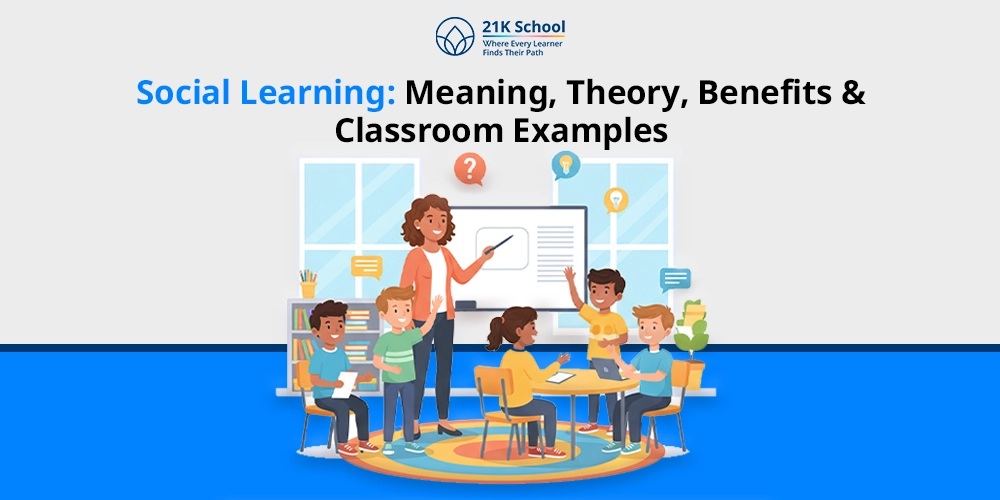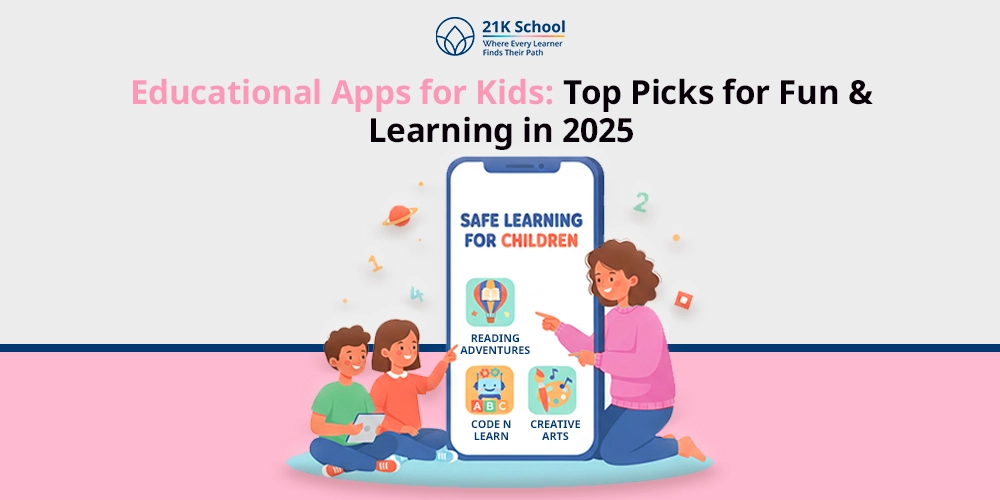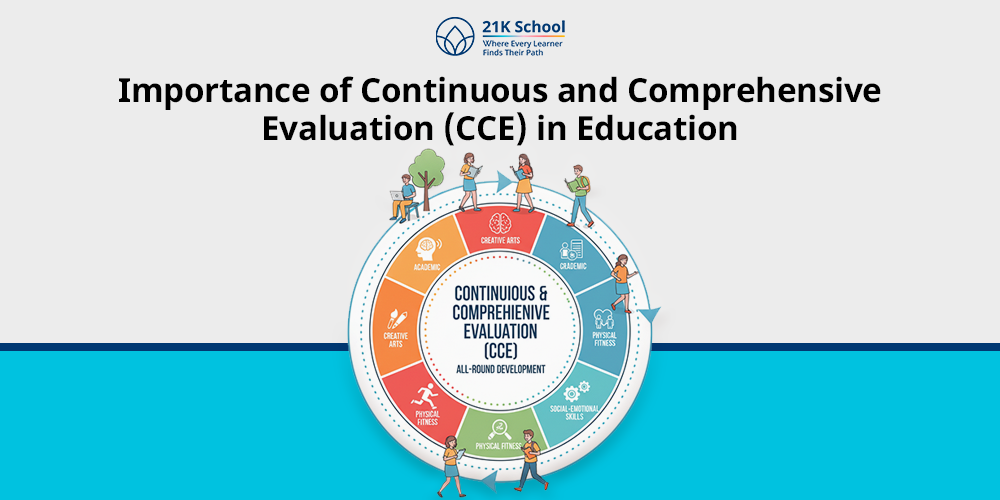
Education is not just about scoring good marks in exams , but rather it is about developing skills, understanding concepts and acquiring knowledge, and personal and career growth.
To check that the students are evaluated continuously in the entire learning procedure, the concept of Continuous and Comprehensive Evaluation was established. However, later on, it was replaced with a “Uniform System of Assessment” for classes VI to IX.
It is diverting the mindset of students from rote learning to all-around development, and helps students to be confident and emotionally strong.
Contents
- What is Continuous and Comprehensive Evaluation?
- 10 Importance of Continuous and Comprehensive Evaluation (CCE)
- 1. Promotes Holistic Development
- 2. Reduces Examination Stress
- 3. Improves Learning Outcomes
- 4. Encourages Active Learning
- 5. Promotes Continuous Learning
- 6. Strengthens Teacher-Student Relationship
- 7. Offers Personalised Feedback
- 8. Helps in the Development of Essential Life Skills
- 9. Ensures Early Intervention
- 10. Helps in the Identification of Interests
- Conclusion
What is Continuous and Comprehensive Evaluation?
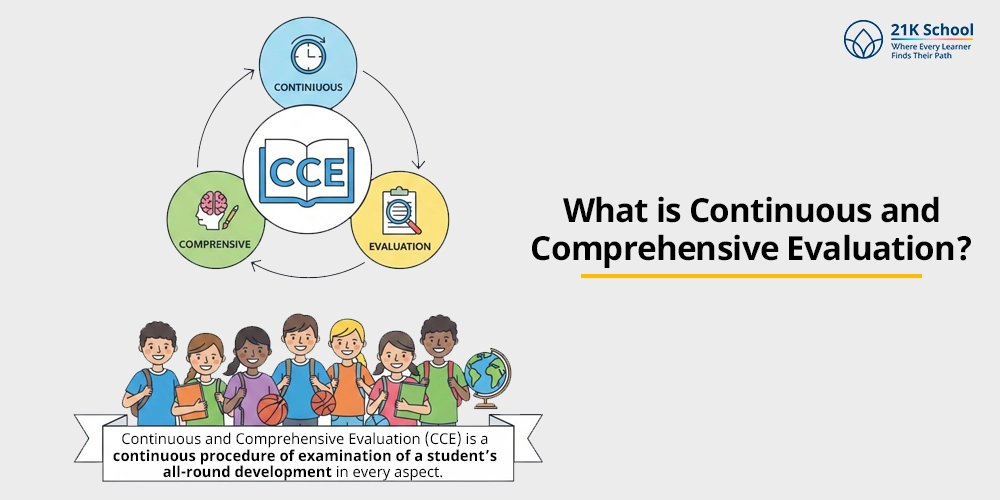
Continuous and Comprehensive Evaluation (CCE) is a continuous procedure of examination of a student’s all-round development in every aspect.
This proposal was established by the Central Board of Secondary Education of India under the Right to Education Act in 2009.
CCE was introduced to omit the examination stress and pressure, and to empower learning via regular feedback and holistic education .
In place of completely depending on the final exams, CCE prioritises continuous review of quizzes, class participation and group discussions.
10 Importance of Continuous and Comprehensive Evaluation (CCE)
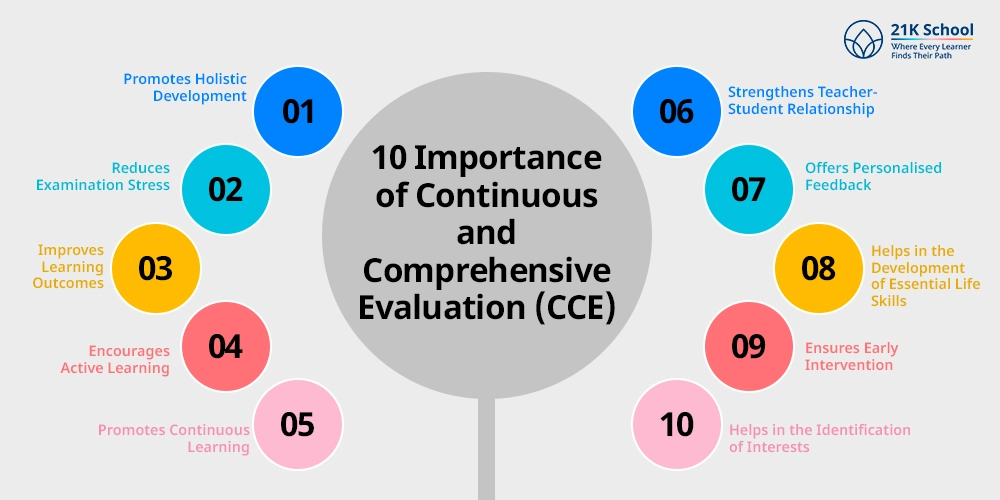
Continuous and Comprehensive Evaluation (CCE) is significant as it would minimise stress related to exams, ensure a wider perspective of a student with his or her abilities, and ensure the overall growth. The following are the importance of continuous and comprehensive evaluation (CCE).
1. Promotes Holistic Development
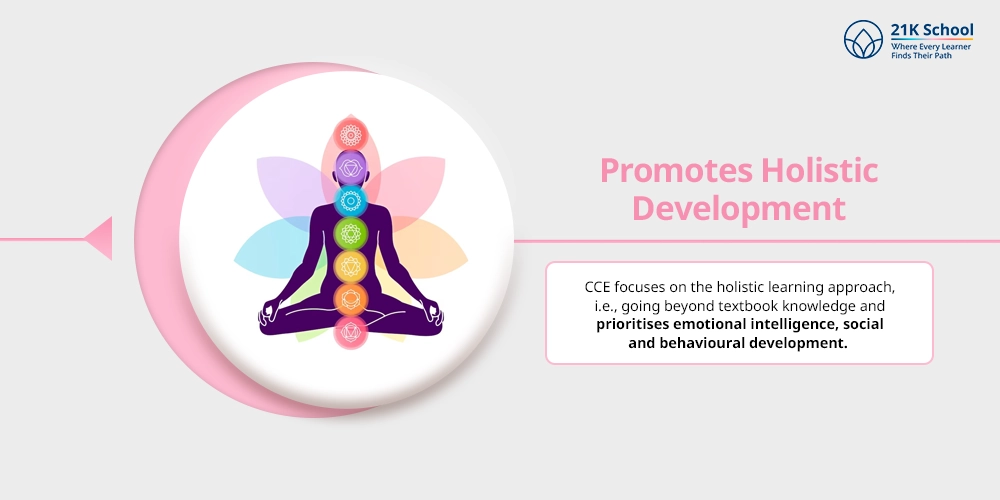
CCE focuses on the holistic learning approach, i.e., going beyond textbook knowledge and prioritises emotional intelligence , social and behavioural development.
Its main aim is to foster every aspect of students , starting from intellectual skills, creativity, to moral ethics and communication.
This holistic education helps the students to grow their capabilities and skills into an overall development in order to handle various real-life situations and obstacles.
2. Reduces Examination Stress
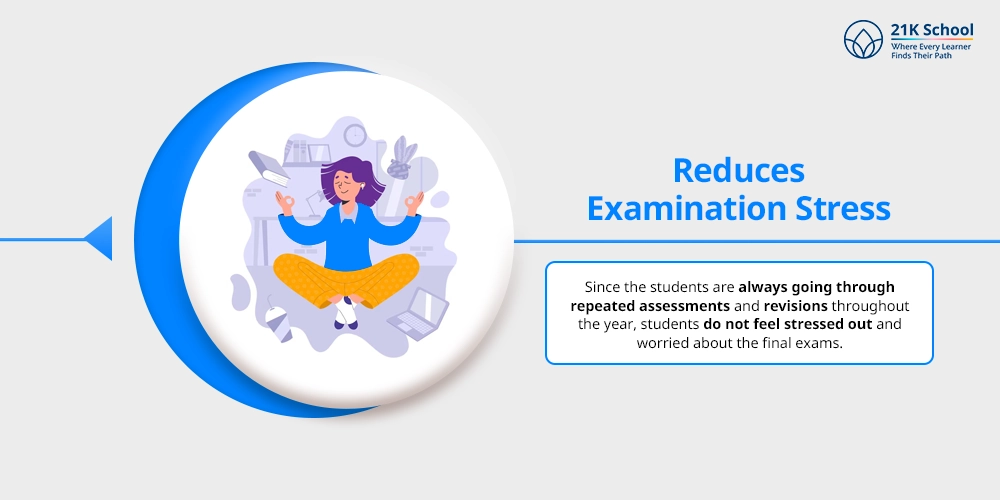
One of the important goals of CCE is to relieve the stress that occurs while appearing for the exams .
Since the students are always going through repeated assessments and revisions throughout the year, students do not feel stressed out and worried about the final exams.
Continuous tests and co-curricular activities in the classrooms help the students to boost their confidence even more strongly than they used to be before these activities. Therefore, CCE is making learning more fun and enjoyable for the students by removing the exam-centric approach.
3. Improves Learning Outcomes
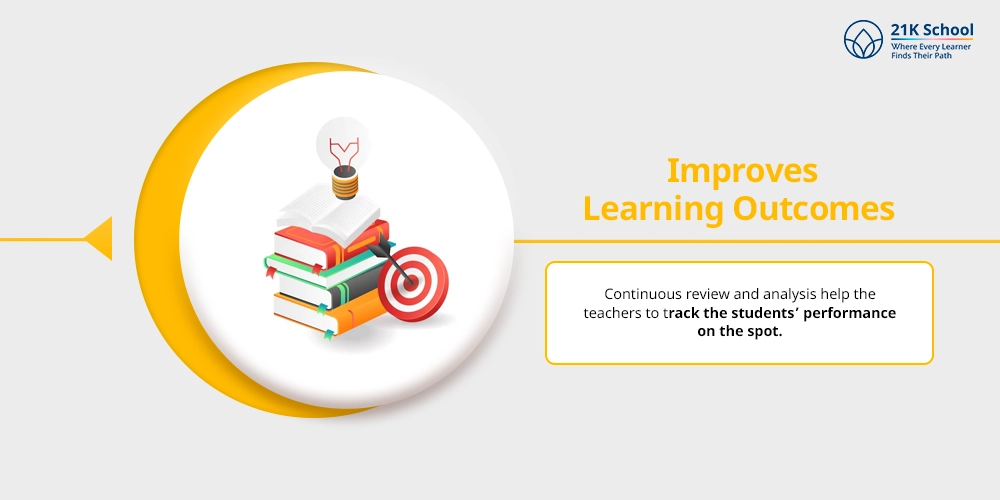
Continuous review and analysis help the teachers to track the students’ performance on the spot. The current procedure allows us to identify gaps in learning and helps teachers to take necessary measures according to the students’ learning preferences.
However, the students can have a deeper understanding of knowledge, facts and information, rather than just remembering it for the exams, which helps in better academic performance and prolonged learning.
4. Encourages Active Learning
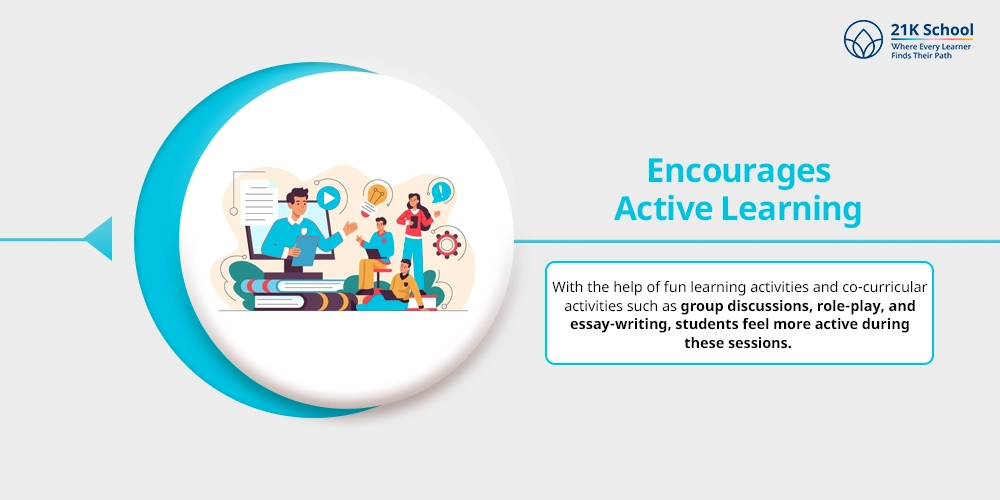
CCE converts the students from passive listeners to active participants. With the help of fun learning activities and co-curricular activities such as group discussions, role-play, and essay-writing, students feel more active during these sessions.
The active participation of the students helps to nurture life skills such as problem-solving , creative thinking , and a positive attitude of the students.
5. Promotes Continuous Learning
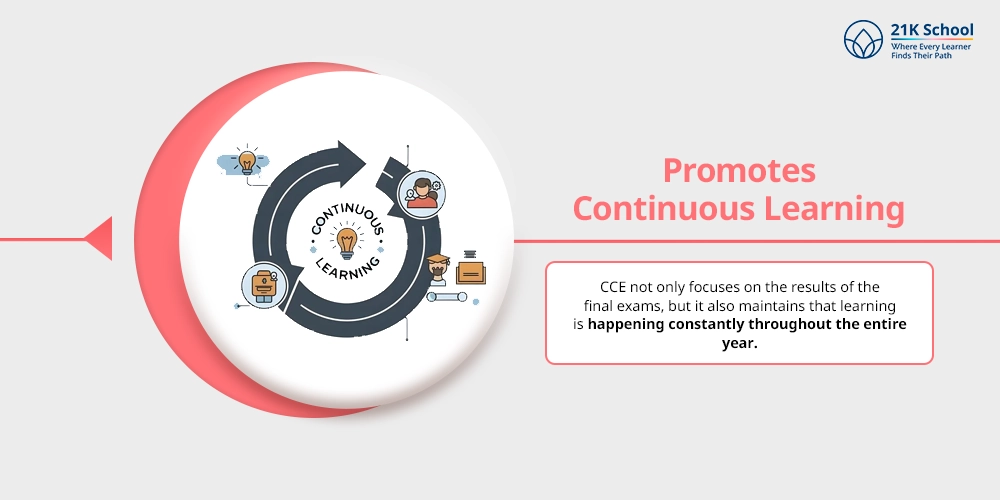
CCE not only focuses on the results of the final exams, but it also maintains that learning is happening constantly throughout the entire year. By conducting regular assessments, quizzes, students stay focused and stay in touch with the lessons, which keeps them motivated during the examination hours.
This regular study habits controls discipline and help the students to have a deep understanding of the concept through the learning procedure.
6. Strengthens Teacher-Student Relationship
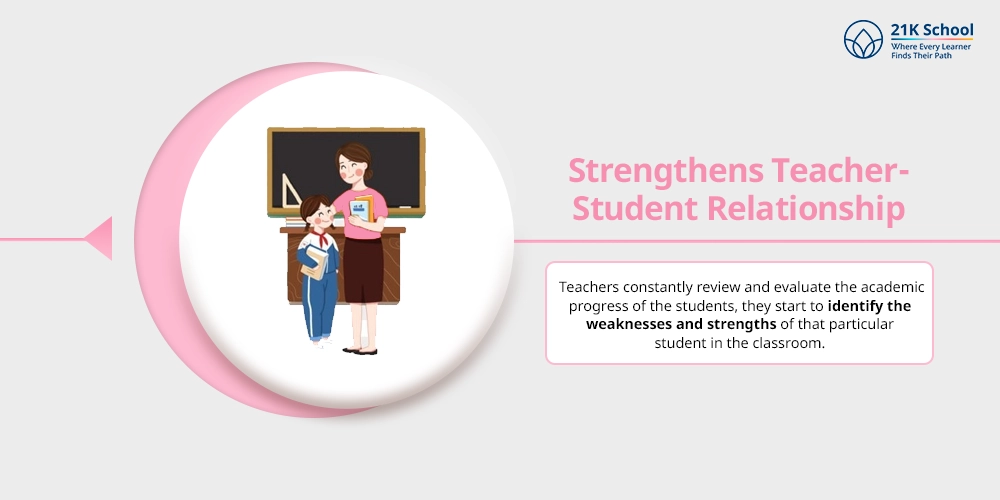
As the teachers constantly review and evaluate the academic progress of the students, they start to identify the weaknesses and strengths of that particular student in the classroom.
Regular communication and engagement between the students and teachers will develop trust and empathy among them.
So, when the students feel most comfortable and free with the teachers, then only they can share their doubts and ask for guidance and help from the teachers without having a feeling of being judged.
7. Offers Personalised Feedback
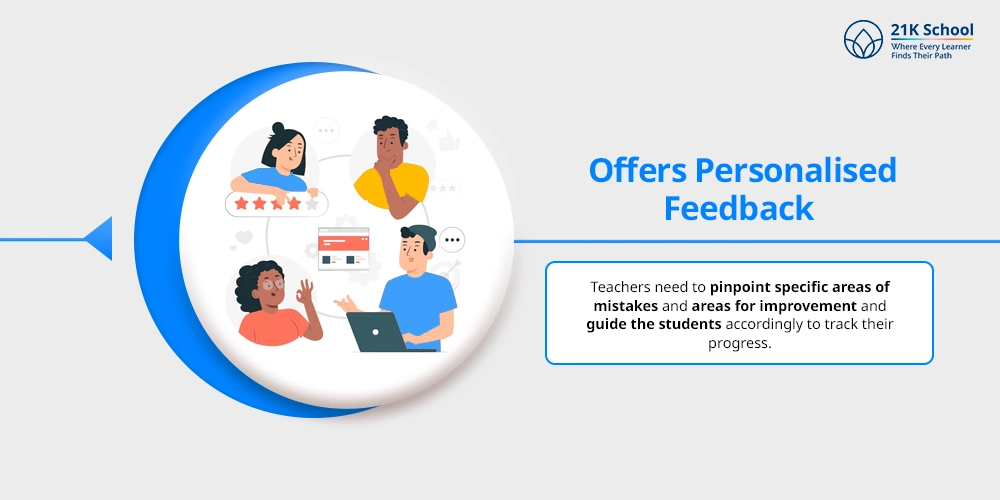
CCE is offering precise and productive feedback customised for the students.
To see improvements in students , teachers need to pinpoint specific areas of mistakes and areas for improvement and guide the students accordingly to track their progress.
So, the personalised feedback helps students perform better than in previous tests or exams, and enhances their eagerness to achieve the goal.
8. Helps in the Development of Essential Life Skills
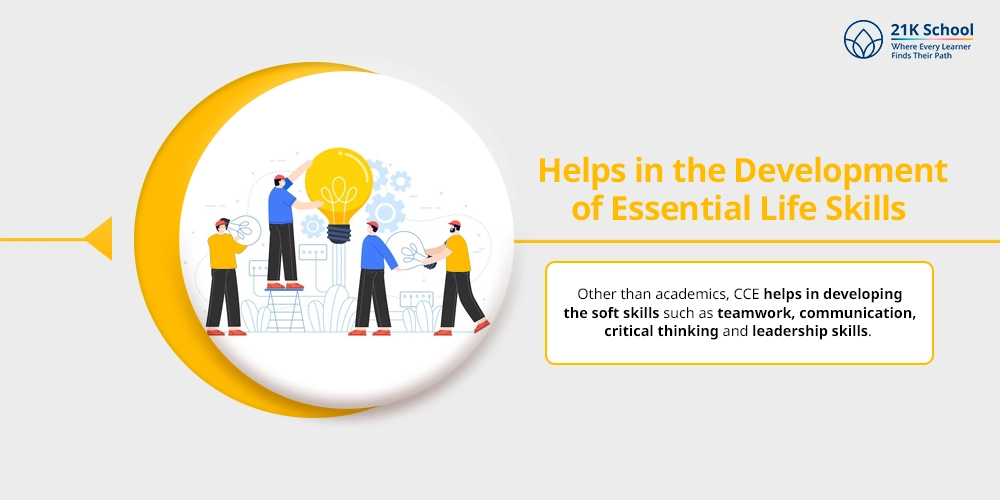
Other than academics, CCE helps in developing the soft skills such as teamwork, communication, critical thinking and leadership skills .
It also develops the emotional intelligence of the students by getting them involved in various activities such as sports, co-curricular activities, and group discussion .
These are the most important skills that an individual needs to have to achieve higher goals and a successful career.
9. Ensures Early Intervention
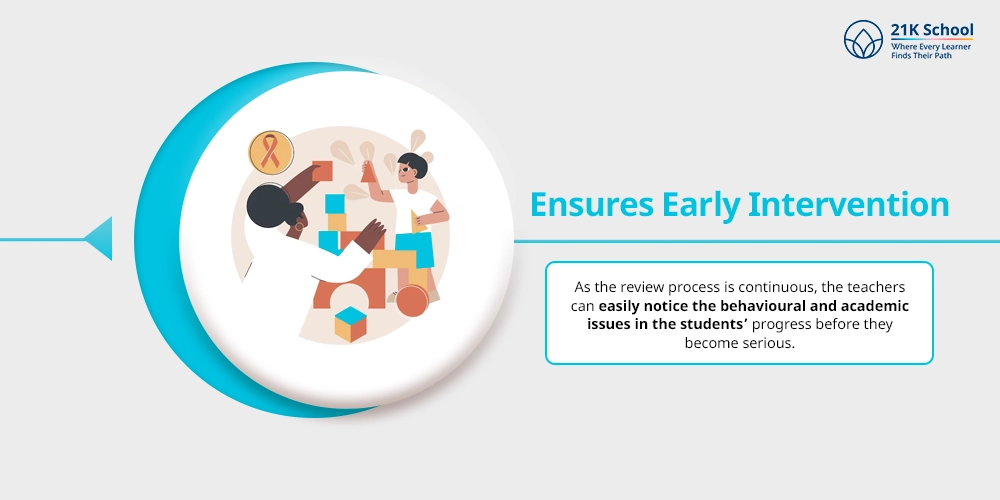
One of the toughest features of CCE is to find out the learning challenges early.
As the review process is continuous, the teachers can easily notice the behavioural and academic issues in the students’ progress before they become serious.
Through early intervention, students can get the right amount of guidance and support from mentors or teachers in order to face the challenges and avoid prolonged knowledge gaps.
10. Helps in the Identification of Interests
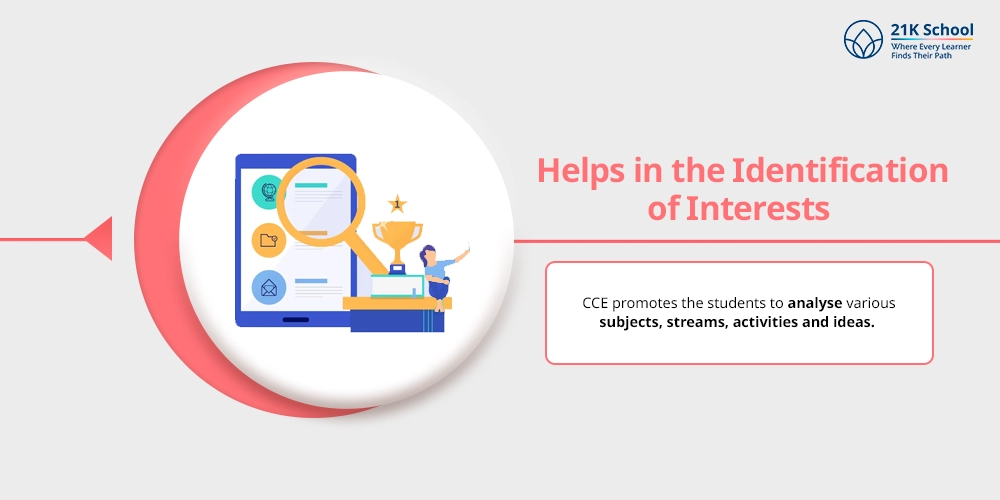
CCE promotes the students to analyse various subjects, streams, activities and ideas.
Teachers can notice the interests of the students while performing any kind of co-curricular activities or problem-solving tasks, be it maths, science, arts, etc.
With the help of this guidance and rectification, students can select suitable career paths that complement their sense of interest and abilities.
Conclusion
Continuous and Comprehensive Evaluation(CCE) marks a significant change in the education system, i.e., from score-oriented evaluation to growth-development learning.
By focusing on both academic and personal development, it assures that education is offering its true intention – by developing confident, compassionate individuals.
By the implementation of CCE, it has converted the classrooms into places where studying and education look meaningful, engaging and interactive for each and every student in the class.
However, it has been replaced with a new “Uniform System of Assessment” for classes VI to IX.

